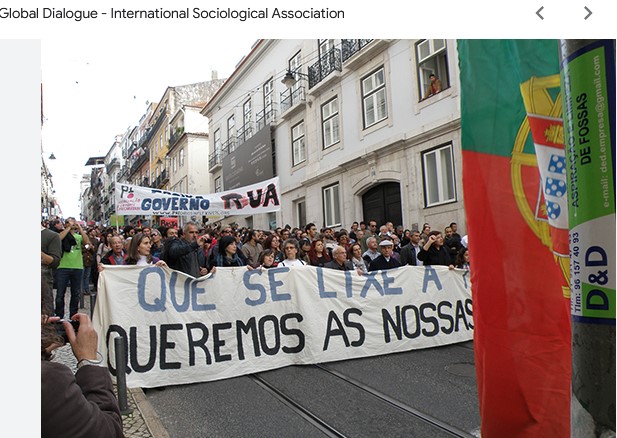
STRATEGIC ASSESSMENT. After a snap general election in Portugal on Sunday failed to produce a decisive winner – none of the parties won enough seats to form a parliamentary majority – the country faces political uncertainty and a resurgent far-right. The current governing Socialist Party (SP) conceded after the preliminary results revealed that the center-right Democratic Alliance (AD) narrowly won the election. About 99 percent of the voting districts have counted their ballots, and ballots cast abroad, which elect four seats, have yet to be counted – although the SP leader stated that the votes the party garnered were unlikely to be enough to win. As the current results stand, the AD won 79 seats, gaining two more from the previous election in 2022, with the SP winning 77 seats – a significant drop from the 120 the party won in 2022. Perhaps most remarkably, the far-right populist Chega party quadrupled its parliamentary seats from 12 in 2022 to 48 on Sunday. The results not only ended the SP’s eight years in power and delivered the AD a narrow, tenuous victory, but also signal that Portugal no longer remains an outlier in the broader right-ward populist shift currently underway in Europe.
The snap election was called last November after Socialist Prime Minister António Costa resigned amidst corruption allegations against his government, with Portuguese authorities launching raids on the prime minister’s official residence, ministries throughout Lisbon, and the private homes of several government officials. Prime Minister Costa’s chief of staff and personal adviser were both placed under arrest, and prosecutors reportedly had evidence that the prime minister’s name had been invoked by suspects in alleged influence peddling dealings connected to lithium mining and hydrogen production. The Democratic Alliance, which is composed of several parties, has also been tainted by corruption allegations. A recent graft investigation in Portugal’s Madeira Islands led to the resignation of two prominent officials of the Social Democratic party, one of the main parties of the AD. Rather than demonstrating the widespread resonance of the AD as Sunday’s winner, the results reflect a deeper dissatisfaction within Portugal over the seemingly endemic corruption among the mainstream political parties. Juxtaposing itself to the parties facing public investigation, Chega has sought to present itself as an alternative.
Although there was no decisive winner on Sunday, the SP’s concession paves the way for the AD to form a minority government, potentially enabled by the Socialists. Chega leader André Ventura has stated that such a prospect would risk depriving Portuguese voters of their legitimate representation, as, from his perspective, the election demonstrated a repudiation of the mainstream parties. The center-right AD has previously vowed not to form a coalition with the Chega party, a campaign promise AD leader Luís Montenegro reaffirmed on Monday. There are incentives for both the AD and SP to enable a minority government and thereby prevent another round of elections, an outcome which would risk Chega delivering an even better performance and add to the party’s gaining momentum. Yet, an AD minority government, even enabled by the SP, will be both politically fragile and limited in its power. Any cooperation between the mainstream parties, even to limit the ascension of the far-right, will be neither explicit, nor will it address some of the underlying factors that have led to a surge in support for the far-right populist party. Moreover, with Chega controlling 48 seats, it is unclear how the minority coalition will govern without the populist party.
Founded in 2019, the Chega party, like its counterparts across Europe, is defined by its ultranationalist, anti-immigrant, Euroskeptic platform. Its slogan of “God, country, family, and work,” not only reflects similar slogans of right-wing populist contemporaries, such as in Italy and Hungary, but is considered by some as an appropriation of former Portuguese dictator António de Oliveira Salazar’s fascist regime’s “God, country, family.” Critics have accused the party’s messaging and rhetoric as being xenophobic, demonstrating particular hostility directed toward the Roma community – who the party has characterized as having a “chronic problem” with “delinquency and violence” – as well as Muslim and immigrant communities. Ventura has also been accused of perpetuating the “Great Replacement” conspiracy theory, claiming that immigrants will replace native Portuguese citizens. Chega has been characterized by its extreme policy proposals, including an attempt to introduce chemical castration as a penalty for some sex offenders and quota systems for the entry of foreigners. As its counterparts in Europe have done, the party has seemingly tapped into some concerns around migration. Portugal’s immigrant population grew by nearly seventy percent between 2018-2022, according to Portuguese government statistics. The country has also become a common endpoint for migrants in the wake of the political backlash over the Syrian refugee crisis in northern Europe. However, Chega’s real success seems to be its ability to tap into widespread public discontent with the mainstream parties, due to the corruption allegations, as well as low wage growth, rising prices, and a lack of public investment in infrastructure in the country. The far-right party has also put forth a range of populist policies, such as tempering migration, instituting higher taxes for banks and oil companies, and ensuring higher pensions, demonstrating its ability to straddle the far-left paradigm and attract voters across the spectrum.
Although predictions for Sunday’s results projected that Chega would increase its vote share and parliamentary seats from the previous election, the party exceeded many election observers’ expectations. The four-fold increase in its seats reflects a resurgent far-right in Portugal, a notable development in a country that was previously considered an outlier among Europe’s burgeoning far-right. Yet, the growth of Chega, alongside Vox in Spain, signals that the momentum of Europe’s far-right populist parties is not only sustained but expanding beyond previous successes, such as the AfD in Germany, the Sweden Democrats, and the Party for Freedom in the Netherlands. Although support for the AfD has slipped due to protests in Germany, the party has shown remarkable resiliency when faced with controversy in the past. The continued momentum of far-right populists in Europe could serve to both buoy their counterparts across the continent, such as in Germany, as well as to mainstream shared priorities, including on migration and the cost-of-living crisis. Moreover, Chega’s electoral success, coupled with the apparent resonance of far-right – perhaps more broadly, populist – messaging with the European electorate, may prove to be a bellwether for the upcoming European Parliament elections in June.








